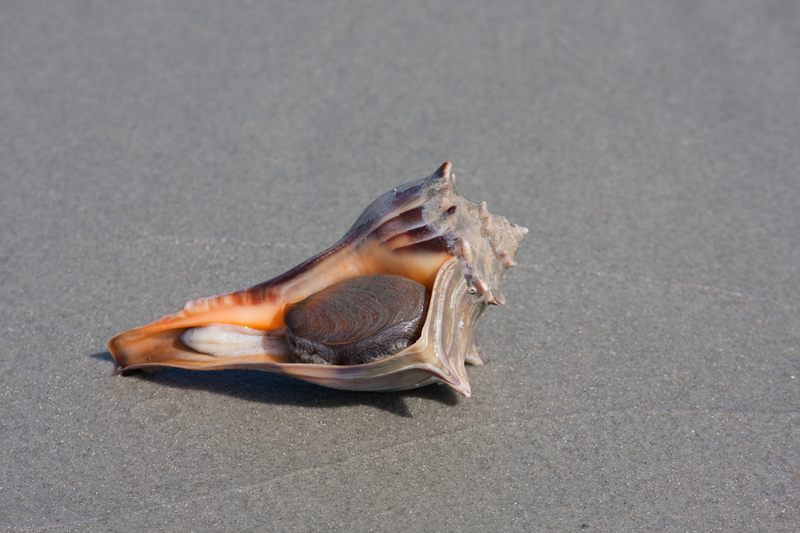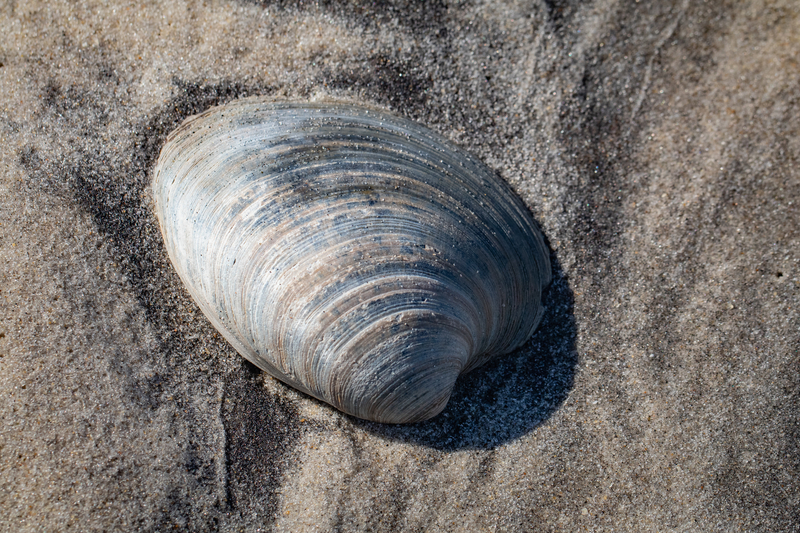SEASIDE HEIGHTS, NJ – If you walk along the beach in New Jersey, you’re going to see a lot of clam shells. You’ll also find a bunch of scallop shells. Once in a while, you might find another shell, one of the most coveted finds in New Jersey.
While clamming and oyster harvesting significantly contribute to New Jersey’s maritime economy, it’s the Knobbed Whelk that holds the title of the state’s official seashell. This marine emblem has been a part of the state’s identity since 1995, standing as a testament to New Jersey’s rich coastal ecosystem.
The Knobbed Whelk, Busycotypus canaliculatus, is a type of large marine snail native to the eastern seaboard of the United States. This gastropod is known for its sturdy shell, which ranges in size from about 5 to 12 inches. The shell, with its distinctive knobs and spirals, is often compared to a smaller version of a conch shell.

Despite its emblematic status, finding a Knobbed Whelk on New Jersey’s beaches is a rarity. The primary reason for this scarcity is their habitat preference; these snails prefer the underwater subtidal zones where they have better access to their prey, which mainly includes bivalves and small crustaceans. Their choice of habitat keeps them away from the shoreline, much to the disappointment of beachcombers and marine enthusiasts.
The commercial harvesting of Knobbed Whelk for their meat and shells has also contributed to their elusive presence on the shores. The state has regulations in place to manage whelk harvesting, ensuring a sustainable balance between commercial interests and ecological preservation.
Why are fishermen taking all the knobbed whelks? The answer is purely a New Jersey one. It’s the main ingredient in scungilli. So, maybe it makes sense afterall.
